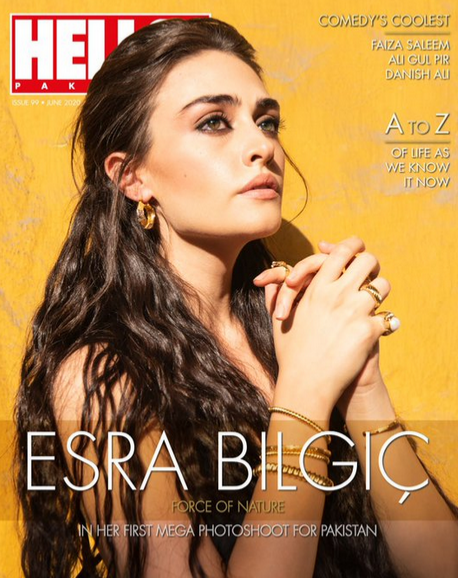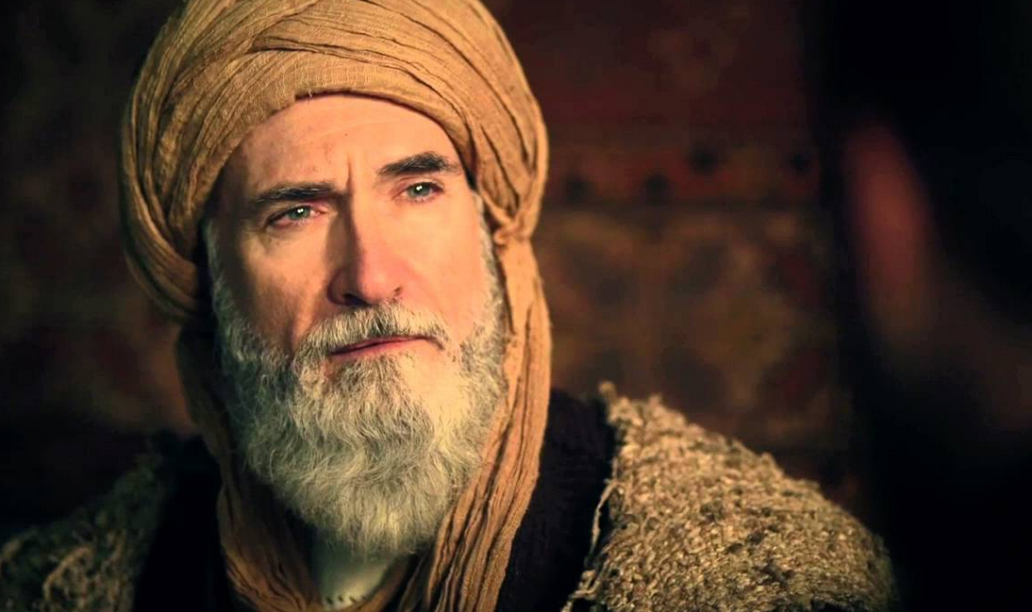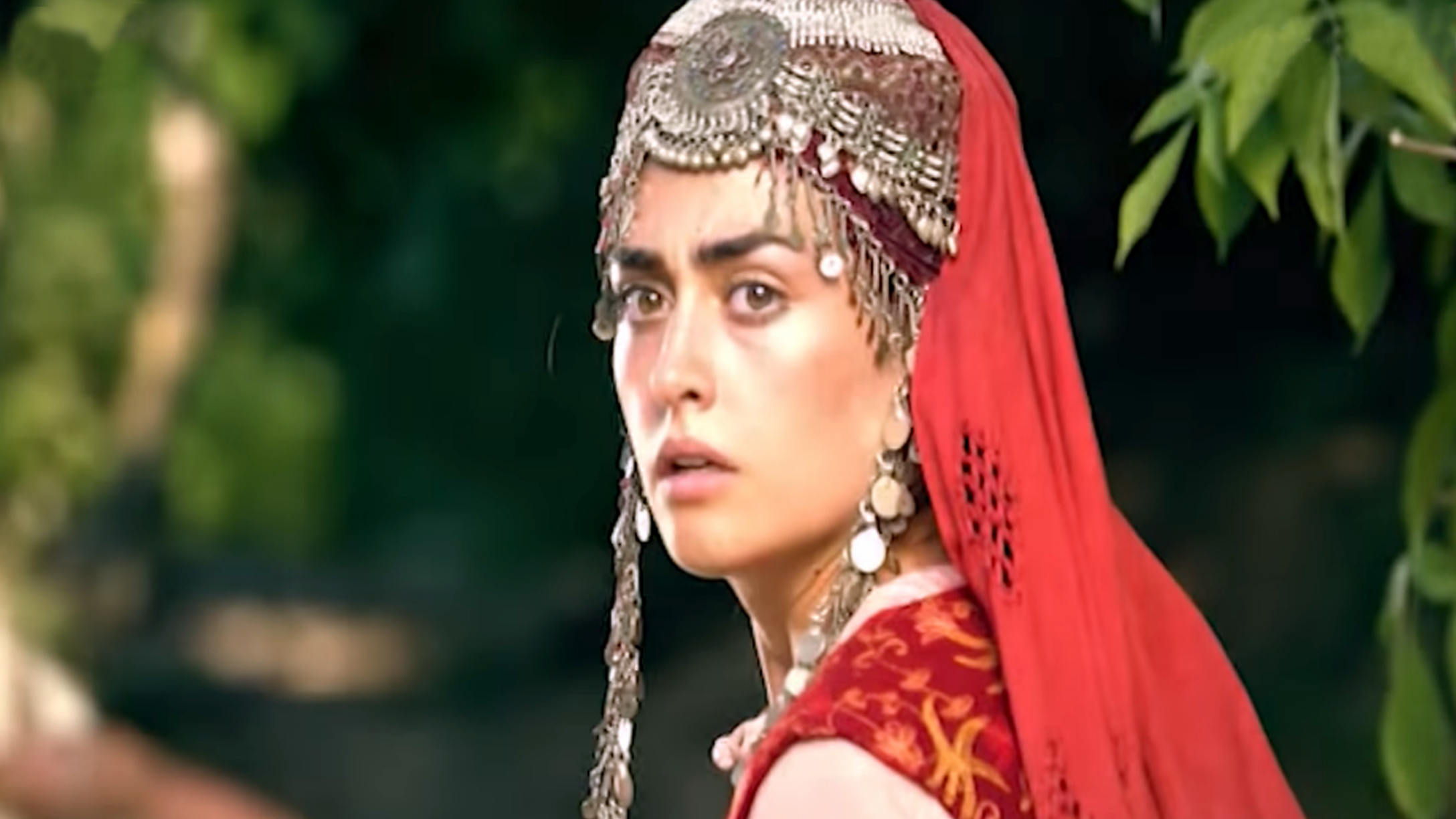Pakistan was in lockdown during the escalating COVID-19 crisis when the state-run television channel PTV announced that it would be airing the 2014 worldwide hit series from Turkey, Diriliş: Ertuğrul (Resurrection: Ertugrul), for the month of Ramadan (Ramazan, as it’s pronounced in Urdu). In the hot, blistering days of quarantine in late April, a lot of Pakistanis were stuck in their homes with nothing to do but switch on the television.
Television commonly acquires a religious bent during Ramazan in this Muslim-majority nation. Network executives capitalize on religiosity to spike ratings—much as US television cashes in on the Christmas season in December—and there’s no limit to how far the spectacle will go, such as when a celebrity cleric awarded an abandoned baby to a childless couple on a game show.
The popularity of dizi, Turkish soap operas bearing a strong resemblance to telenovelas and the Dynasty or 24 style of American soaps, is global, with huge and avid audiences in South America, Europe, the Middle East, China, Korea and Mexico.
Ertugrul follows the exploits of a pastoral warrior who would become the father of Osman I, founder of the Ottoman Empire. The series opens as Ertugrul, son of a tribal chieftain, must find a home for his people, who have been driven from their native land by the Mongols. He faces Crusaders in battle and outmaneuvers the schemes of Muslim rulers. It’s like a PG version of Vikings, with medieval fight scenes and period costumes, but no nudity. It’s also been called “a Muslim Game of Thrones,” given the battles, romance, and political intrigues: Ertugrul is a tall, Turkish version of Ned Stark, but with the emphasis on an underdog’s unbreakable code of honor, rather than the realpolitik that is at the core of Game of Thrones.
Turkey’s president Erdogan has spoken of the show as a positive representation of the nation’s past, which provides a foundation for the ruling AKP party’s nationalism today, but Ertugrul has taken on a life of its own, with a fandom stretching from Brazil to Indonesia. A Mexican couple converted to Islam after watching the series, and Venezuelan president Nicolas Maduro visited the set in 2018, where he did a cosplay with his wife.
In some ways it was surprising that Ertugrul hadn’t broken into the Pakistani market earlier. The sweeping Turkish epic was a foreign import in a country that banned Bollywood cinema after political tensions broke out between Pakistan and India last year, under the pretext of incentivizing our local film industry. And while Turkish dramas had aired before on local channels, PTV is the channel, state-sponsored and publicly owned, often considered a mouthpiece for the government; indeed Prime Minister Imran Khan publicly declared himself a fan of Ertugrul.
Activists critical of Khan’s government responded with an uproar. Ertugrul became an overnight bogeyman, a Turkish invader brainwashing Pakistanis into downplaying our Hindu and Buddhist heritage and encouraging extremist sentiment—even if it was also simply a popular entertainment for a bored populace exhausted by the pandemic, unable to go to the movies, and collectively broke under austerity measures. In the memorable words written by a physicist in Pakistan’s most popular English-language newspaper, “[S]hould we be surprised [if] IS[IS]-like organizations find this inspirational?”

Nevertheless, Ertugrul mania is unmistakable. 133.38 million Pakistanis tuned in over the first three weeks the show aired, and PTV’s YouTube channel amassed six million subscribers. Esra Bilgiç, the actress playing love interest Halime Hatun, was splashed onto the cover of Hello! Pakistan, and social media was flooded with memes, fan accounts and videos, with one corner of the internet even casting IRL Pakistani politicians as characters in the show, which is all about power plays and the hypocrisy of rulers. The craze peaked when a statue of the highly fictionalized hero was erected in a park in Lahore, making it official: Pakistanis had become part of the global Ertugrul fandom.
Ertugrul is a weapon of Turkey’s soft diplomacy, designed to improve the ruling party’s image abroad, but it’s also been appropriated by the mass TV audience in its own ways. For Pakistanis, Ertugrul was a high-definition experience in a desert of low-quality television, where restricted budgets, industry nepotism and the state’s selective patronage of actors, producers, and channels combine to strangle any possibility of quality creative production. With its sumptuous costumes, rolling green hills and mountains, fast-paced action, and attractive foreign cast, Ertugrul was an easy sell. The smattering of ‘God willing’, ‘God is great’, and ‘Thank God’ after every other sentence was just icing on the cake.
Local actors and actresses expressed concern that higher-quality Turkish dramas like Ertugrul would put them out of work. Pakistani TV serials often feature tired saas-bahu (mother-in-law and daughter-in-law) household plots, recycling the same fifty or so actors in monotonous typecast and displaying shoddy camerawork resembling CCTV footage. To be sure, the Pakistani entertainment industry has also made moving art about the human condition, and the 2010s were a wellspring of powerful shows about classism, the 1947 Partition, domestic abuse, and strong, independent women finding their way through the world. But in recent years, the quality of television dramas here has regressed. Instead of providing escapism for an exhausted and desensitized audience, and at a point when the rupee is the lowest it’s been in years, television serials have increasingly come to reflect the toxic society we live in. Private TV channels rely almost exclusively on advertising to sustain their productions; however ridiculous or mind-numbing the saas-bahu dramas may be, the formula sells.

Like other countries, Pakistan has become exposed to the globalization of entertainment media that doesn’t come from the West. In fact Turkey is the second largest exporter of TV shows after the United States, generating a staggering $350 million in 2017 alone.
Dubbed versions of Turkish soap operas have been appearing for years, even in far-flung areas like rural Punjab. Before Ertugrul threatened our identity, Ishq e Mamnu (Forbidden Love) threatened our family values and the respectability of women by depicting “broken families and extramarital affairs.” Jewelers sold Turkish rings, necklaces and bracelets inspired by Magnificent Century, a show opposed by Erdogan because it depicted a darker side of Ottoman history. Turkey became a popular destination for Pakistanis who could afford to travel outside of the country. Even local series like Alif and the film Parey Hut Love (“Stay Away, Love”) were partially set in Turkey.
Ertugrul veers into a kind of ahistorical Islamic fan fiction, with its crossover of historical figures who probably never met in real life. But both Erdogan and Imran Khan see an advantage in the story’s popularity, which strengthens their geopolitical alliance on the basis of shared Muslim identity.
However, not all authoritarian Muslim countries are enamored of Ertugrul. The UAE/Saudi satcaster, Middle East Broadcasting Center (MBC), pulled all Turkish soap operas in early 2018, and developed a big-budget counternarrative called Kingdoms of Fire, depicting a Mamluk uprising against the Ottoman Empire. Egypt’s religious authority issued a fatwa against Ertugrul.
Soft-power political propaganda is on full view in Ertugrul. The hero, Ertugrul Gazi, doesn’t found the Ottoman Empire himself; Osman I appears only as his infant son in the show, which is concerned mainly with the survival of his displaced tribe, the Oguz, his unfurling romance with Halime Hatun, and upholding the integrity of the tribe by protecting the weak. He is a romantic hero, the noble underdog; gentle and honest in comparison with his power-hungry older brother, the show’s hero embodies a Muslim masculinity that’s refreshingly non-toxic. And then there are the women. Halime is not just a love interest, but a force in her own right, a runaway princess who also knows how to use a knife. Even the more villainous women, such as Selcan, are shown to have complex motivations that draw empathy from viewers. Amidst the battles, the political intrigues, and death, the tale is centered around family values and the religion practiced by the powerless.

Where Ertugrul succeeds best is in its nuanced portrayal of the good guys and bad guys. The corruption of Muslim rulers is shown, and fellow tribesmen conspire against the hero. Villainy and betrayal are not limited to the Crusaders, while some of the Christian characters are motivated by the justifiable desire to avenge their loved ones, and others join Ertugrul against the tyrannical Grand Vizier of the Knights Templar. The most compelling figure is Ibn Arabi, a real-life Sufi mystic from Andalusia, who is revered by Shia and Sunni Muslims alike. He is shown leading a chant with drums, a practice intended to lead to hāl or divine ecstasy. Similar communal forms of worship in Pakistan have been targeted by certain terrorists, who propagate the Saudi-sponsored Wahhabist sect of Islam that equates mysticism or worship at shrines with bid’ah (innovation) or shirk, a challenge to the oneness of God. Ibn Arabi advises Ertugrul to “knock down his ego”, in a dramatic departure from the individualistic ambition for conquest or power, and this lesson resonates throughout the story.
In neighboring Bollywood, where a rising tide of fascism has gripped the largest film industry in the world, Muslims in historical epics have lately been depicted as invaders or tyrants. In Hollywood, Muslims are most often terrorists. Ertugrul successfully flipped the script, and attracted even nonreligious fans through good storytelling.
In spite of the Muslim ambitions for Ertugrul expressed by Erdogan and his AKP party, Turkey is still a secular republic. In Turkey, one can drink, party in nightclubs, and kiss in public without getting harassed by the cops. So Pakistanis committed to conservative religious morals were in for a rude awakening when they searched out the Instagram profiles of actors Engin Altan Düzyatan, and Esra Bilgiç. Seeing Engin with his pet dog, Esra modeling lingerie, and the actors embodying a modern lifestyle in Turkey, Pakistanis realized that despite being based on history, Ertugrul was not real. It’s just a TV show.






